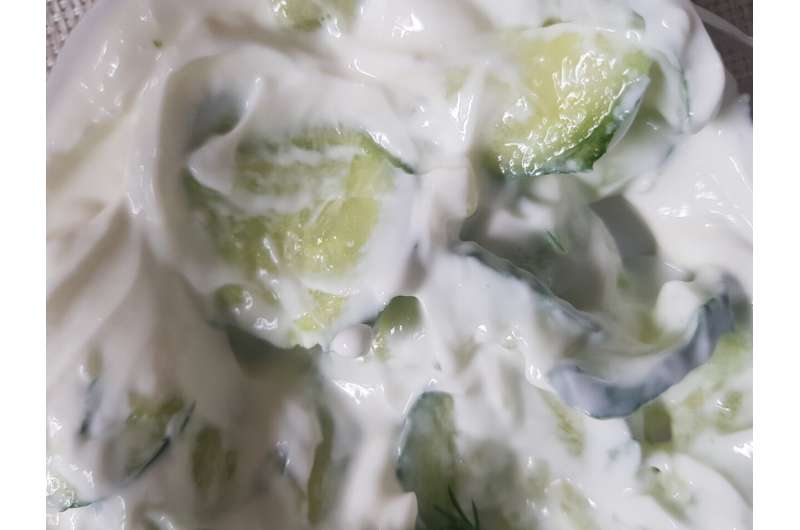
Consumer demand for dairy foods has changed during the COVID-19 pandemic, with increased demand for foods that can be easily stored and maintain quality over time. In a new report published in the Journal of Dairy Science, scientists from the Poznań University of Life Sciences (Poznań, Poland) investigated whether adding fresh or pickled cucumber to sour cream could improve its antioxidative properties or modulate cholesterol transformation during storage.
Demand for high-fat yogurt and sour cream has increased during the pandemic, likely because of their beneficial effects on the immune system or increased consumer interest in ketogenic diets. Research has also shown that the desire for refreshing products can be enhanced by adding vegetables, including cucumber, which is an ideal raw material for producing fermented foods.
“However, when pickled cucumbers are produced by spontaneous fermentation, the amount and type of microorganisms they contain can vary significantly,” said lead investigator Dorota Cais-Sokolińska, Ph.D., of the Poznań University of Life Sciences Department of Dairy and Process Engineering.
“In addition, sour cream with vegetables is often sold in transparent packaging to increase its attractiveness. These observations led us to explore the potential benefits of adding fresh and pickled cucumbers (spontaneous fermentation) to sour cream (targeted fermentation) by examining the effects of this addition on the content of oxysterols. We also examined the effects of light exposure on sour cream with and without fresh or pickled cucumbers over time.”
Oxysterols are biomarkers of neurodegenerative diseases and can influence carcinogenesis and cancer progression.
The study was also inspired by the French paradox—the observation that with the French diet, reduced heart disease is associated with a diet high in saturated fat and cholesterol. Cais-Sokolińska continued, “Therefore, we also examined the content of cholesterol oxidation products in sour cream, a product that is associated with a high intake of saturated fat and cholesterol.”
In the study, clear containers containing sour cream, sour cream with fresh cucumber, or sour cream with pickled cucumber were stored for three weeks while being exposed to light. At the end of the storage period, the researchers measured differences in cholesterol content, cholesterol transformation products, antioxidant activity, and bioaccessibility of antioxidant activity.
The researchers found a significant decrease in cholesterol content in the sour cream with pickled cucumber after storage, from 4.03 g/kg of fat to 3.44 g/kg of fat. Cholesterol oxidation products are formed by oxidation of cholesterol during storage. In plain sour cream, the cholesterol oxidation product content more than tripled; however, it did not change significantly in sour cream with pickled cucumber.
The addition of pickled cucumber to sour cream also significantly increased both antioxidant activity and in vitro bioaccessibility of antioxidant activity. Although cucumbers contain many natural antioxidants, the sour cream with pickled cucumber showed these changes to a much greater degree than sour cream with fresh cucumber.
Source: Read Full Article


